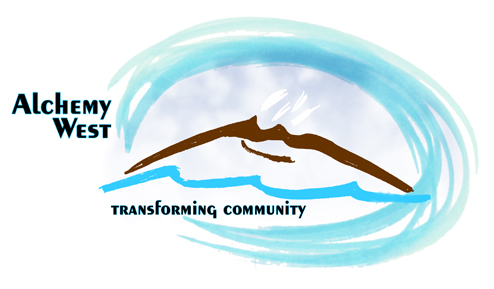
- Copyright (c) 2011 by Danny L. McMillin
Ghosts aren’t always ghosts.
Sometimes they are time travelers. Or we are because we’re talking with them. Or something.
Let me explain.
What I don’t know about ghosts could fill volumes.
What other people think they know about ghosts could fill even more.
So here’s what I know.
Working Between Dimensions and the Crystal Fallon
I clear houses and businesses for people. I cooperatively clear houses and businesses and land systems by creating a conversation between the space being cleared and the humans currently occupying it. Sometimes I clear out things that we call ghosts. Sometimes they’re not willing, but I talk to them about what’s going on and then it’s done. Respectfully. Honestly. As thoroughly as possible.
This process has taken on new dimensions (literally) since Fallon has come back into my life. A citrine Lemurian quartz sphere, Fallon is not a tool. He is my partner. We do intuitive consultations and clearings. A rare planetary and dimensional energy, Fallon has helped me deepen my work, so we’ve been places I didn’t know existed. (Those stories another time.) Point is, Fallon and I work together, and very often it’s the seat-of-my-pants intuitive-logical leap that gets things done. What I call “living outside the box,” or carving my own path instead of adhering to dogmatic lines.
So.
The Haunted House in California
My friend, Jody, lives in a tiny, old, uninsulated house, about 400 square feet, in a small town in northern California. She’s lived in that same house twice. The first time for about 11 months, from late 2006 to 2007. This time she’s been there since April 2010. For years this house was located near Walker Mine in Plumas County, but has been on the current land since sometime after 1948, when the mine was closed.
Jody is one of the best clairaudients I know. That means she can talk to things we wouldn’t ordinarily think to talk with, like animals (and snowflakes). After hanging around with me for awhile and being encouraged to ‘branch out,’ she’s also started talking with many of the same beings I talk with: the land, crystals, and so on. Like most of us she lacks self-confidence, but she has one big thing going for her: she’s willing to listen.
We talk almost every day, but I was slow to pick up on the story about the noises Jody was hearing in the house. She says now that the first time she lived there she heard a few noises, which she dismissed as the creakings of an old house. The second time the noises became louder and more frequent.
Then she saw the ghost. A woman. Over time, Jody saw her more clearly. She was wearing a dress that reminded Jody of pictures she’d seen of relatives back in the ‘30s or ‘40s. One time she even showed up with a man standing beside her.
Now Jody isn’t fond of this ability, but she sees dead people. Sometimes she sees them at other homes, and sometimes they show up at hers. She knows who they are because they make it clear. They have messages. Or sometimes they just hang out. (Yes, she’s seen them all her life but usually ignores them.)
I tell Jody, “So you see dead people, it could be worse, you could see dead murdered people and have to work with the police.”
Somehow that wasn’t comforting. When she insisted she didn’t want to see these things, and didn’t want to talk with dead people, I taught her how to shield herself and tell them “No.”
So that’s what she told the ghost in her house. “Go away and leave me alone.”
Didn’t work. The pounding on the wall continued. Crinkling like cellophane being crumpled. Footsteps across the floor, the sound changing as the ghost moved from carpet to linoleum. Things dropping. Thumping.
Jody would tell me about this and I’d tell her to tell the ghost to stop it. Learning to work with whatever shows up is part of developing your intuitive skills. Being a no-nonsense butt kicker can work, too.
Neither worked.
Being lazy as well as practical, I told Jody, “Well, just tell her to go away.”
Jody would get mad at me. “I’ve tried that! It doesn’t work. I don’t know how to do that.”
“Experiment,” I told her.
So when the ghost thumped and dropped things in the night, Jody would yell out, “Okay, that’s enough, I’m trying to sleep, stop it.” Usually that would work, for that particular night. Honest to goodness, the ghost was generally polite: looking for attention, satisfied to get it.
But still not happy about Jody. Because the ghost never said much, unlike Jody’s other spectral visitors. Didn’t have a message for a loved one. Just said, more than once, “Get out of my house.”
Hmm.
Then things changed. The ghost touched Jody. One night, Jody was lying in bed, and she felt a hand lightly brush down her arm.
Now, that’s just plain creepy.
What If a Ghost Isn’t a Ghost?
When I heard that the ghost had touched Jody something cold and dreaded hit my gut. I stayed calm and thought about it.
I’m happy to say many things show up around me but I’ve only been scared once (and then because I was being silly). I talk to a lot of things, from animals to homes and businesses and weather systems to things we don’t even know realio trulio exist, like dragons (thank you Ogden Nash and The Tale of Custard the Dragon). We talk about fun goofy cocktail party stuff and we talk about how to live together as equal beings on a conscious, evolving planet.
We talk about consequences.
It’s serious business. I take it seriously. And now I was wondering. Seriously.
If a ghost could actually touch Jody, what does that mean? Something awful occurred to me.
“Okay,” I said to Jody. “I’m not liking this. Why haven’t you put a stop to this ghost?”
Jody insisted she didn’t really mind the ghost. But she sounded more defensive than certain. Hmm again.
“I’d mind,” I said. “It’s creepy that there’s a ghost disrupting your house.”
Jody got mad at me. “There’s nothing I can do about it. So quit bringing it up.”
Okay, sometimes you have to let things go, especially when you’re training people to use their intuition, because they have to learn to be self-reliant and self-confident. However, there was the whole matter of touching Jody.
“Thing is, I’m not thinking that’s a good idea. You said the ghost touched you. You actually felt her hand running down your arm.”
“Yes,” Jody said. “That was weird.”
“And potentially dangerous,” I said. “We don’t know everything about the world. But think about it. She wants you out of her house, and keeps saying that. She’s now touching you and she’s a ghost. How far is that from losing her temper … and stabbing you with a knife?”
Jody freaked. Couldn’t blame her. I also couldn’t let it go. “Why do you think she could stab me?” she asked.
“I don’t know, Jody. But if she can touch you with her hand, why couldn’t she pick a knife up and stab you? It’s not like there’s a definitive guidebook on what ghosts can and can’t do. I’d hate to find out that was possible after it happened.”
Jody snorted. She gets impatient with my analytical, skeptical mind. My mom used to complain that I think too much. I’m pretty sure Jody would agree with her.
I said. “Really, what if she isn’t a ghost?”
“What?”
“Honestly, who knows what ghosts really are? All we know is that we can see some vague outline, or in this case, you see a woman. Now you’ve seen dead people before, relatives of people you knew who had messages for them. But this is different. What if she’s not a ghost?”
“Like what would she be?”
“Well, the connection is the house. Clearly you’re living there now and she thinks it’s her house. What if she’s seeing you and thinking you’re a ghost?”
Oh, now I was on a roll.
“We don’t know where she is actually living now. Back years ago the house was in a small rural area. What if she’s intuitive like us? What if she’s practicing some kind of magic and is trying to clear her house of you, thinking you’re a ghost? What if she’s really powerful, which she’d have to be to touch you because she’s not here in a living body? What if she’s hired somebody to clear out the ghost in her house, but that ghost is you? This could be extremely dangerous.”
Jody got quiet. Well, who wouldn’t?
“Here’s another thing,” I said. “You know Fallon and I astral travel, whatever, that we go between dimensions and visit other places. I’m sure we’re not the only ones who do that, we’re just probably the only ones who make up procedures as we go. Not always a good idea, but you know me.”
Jody chuckled.
“So, what if she isn’t a ghost but a time traveler?”
“What?”
“Jody, what if she is alive in another time period and she’s trying to get rid of the ghost she keeps seeing in her house?”
“Is that even possible?”
“Who really knows what’s possible?” I said. “But here’s another thing that bothers me. People who are energy workers and psychics and so on are always talking about ‘energy,’ but not really defining it. From working with other beings I’d say there is a different vibration to every being, which is why my guides explain why I don’t feel the vibrations of things like Mount St. Helens any more, because a volcano is just too big for a human to feel on that level.”
“Yes, we’ve talked about that,” Jody said.
“So here’s the thing. You’re living here in this time period and she’s thinking you’re a ghost in her house, so the connection is the house. So we know from my weird experiences that different dimensions exist, so why not different time periods? What if you’re both living in the house but in different times? And the house is vibrating in both time periods? That worries me. How long could anything hold up like that, especially an old house?”
“What am I supposed to do about it?” Jody asked.
“Clear your house and get her out of there.”
“I don’t know how!” Jody yelled. “And I’m tired! The noises in the house are getting worse. And my guides aren’t helping. I asked them to keep her out and they don’t do it. And I tell her she’s dead and it’s time to move on and she won’t!”
Now, Jody had cleared her house twice following my directions, with sea salt and smudging and calling her guides to help. Both times were temporary fixes. Her guides were no help, well, that is just guides for you. Sometimes they’re not practical. Sometimes they’re waiting for us to take charge. Sometimes they just give up on you and quit, like mine did for awhile. So no telling what Jody’s guides were up to.
It didn’t matter too much, because I’d just deliberately backed her into a solution, spurred on by my crystal partner, Fallon.
“So Fallon and I will clear the house for you on the phone. You can work with us on your end.”
Jody agreed, sounding relieved.
“Good,” I said. “We’ll call you at six tomorrow night. Now go out and get sea salt, more sage, and be ready when I call.”
In Part 2: What happened next. Did we clear the house? Was it a ghost? What lessons do we carry forward?
© 2011 Robyn M Fritz
![GreenVoteYes[1]](http://www.alchemywestinc.com/blog/wp-content/uploads/2011/09/GreenVoteYes1.jpg) I just bought dishes from Crate & Barrel. It’s not the first time I’ve purchased from them. It sure has heck won’t be the last.
I just bought dishes from Crate & Barrel. It’s not the first time I’ve purchased from them. It sure has heck won’t be the last.
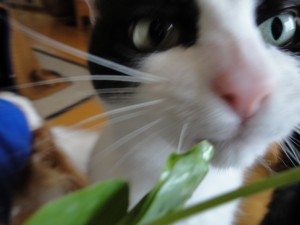 Cooking is a skill I apparently lost with menopause—and only miss when I’m hungry.
Cooking is a skill I apparently lost with menopause—and only miss when I’m hungry. Take, for example, pea shoots. I love pea shoots. I have no idea what they are, except pea shoots, but we love them at our house, all of us, even the cat. We’re even doing a video starring pea shoots. Now, the dogs always come running when I come through the door with food, but if I say, “Pea shoots!” then Grace the Cat leaps up from her normal out cold snooze and races to hold down the kitchen counter while supervising grocery unloading.
Take, for example, pea shoots. I love pea shoots. I have no idea what they are, except pea shoots, but we love them at our house, all of us, even the cat. We’re even doing a video starring pea shoots. Now, the dogs always come running when I come through the door with food, but if I say, “Pea shoots!” then Grace the Cat leaps up from her normal out cold snooze and races to hold down the kitchen counter while supervising grocery unloading. So now I’m a reformed shopper at the West Seattle Farmers’ Market. The vendors tend to explain things to me as they’re putting them in my bag: this is pea shoots, this is spinach, whatever. People in line shake their heads and sigh. But at least I get home safely. With food we kind of know how to eat.
So now I’m a reformed shopper at the West Seattle Farmers’ Market. The vendors tend to explain things to me as they’re putting them in my bag: this is pea shoots, this is spinach, whatever. People in line shake their heads and sigh. But at least I get home safely. With food we kind of know how to eat. 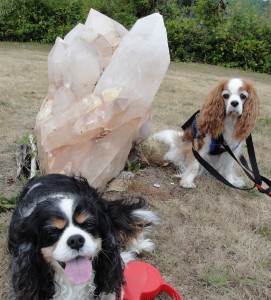 I live on the Planet of Awesome and Forever.
I live on the Planet of Awesome and Forever.


